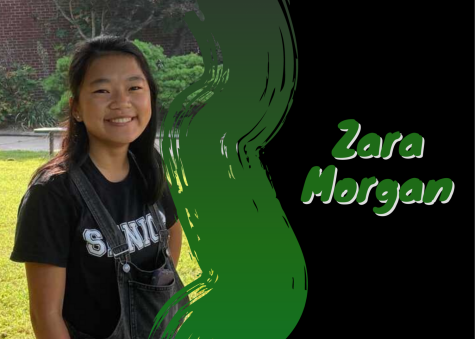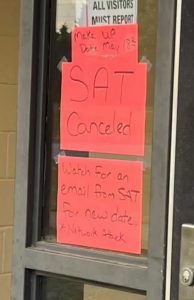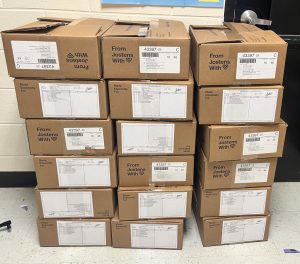What’s up with DisneyPlus’s WandaVision?
Jan 29, 2021
*SPOILER WARNING*
“WandaVision” is the new Disney Plus show that has left fans of the Marvel Cinematic Universe scratching their heads. “WandaVision” takes two of our favorite action superheroes and puts them in the world of an old fashioned sitcom. In the show, we watch Vision (Paul Bettany) and Wanda Maximoff (Elizabeth Olsen) try to live the “ideal suburban” life while also trying to conceal their supernatural abilities, superhuman senses and flight, and chaos magic respectively. The show has not made it clear whether this takes place before or after “Endgame,” or even in the same universe as the main MCU timeline. On surface level, the show is seen as fun and enjoyable, but many fans theorize there is something darker going on behind the scenes.
The show opens with Vision and Wanda arguing over a marked date on the calendar. The only thing marked on the calendar is a heart, and neither of them remember what the day is, and, equally, neither of them want to admit they don’t remember what they are celebrating. We then follow them throughout the day as each of them try to remember why that day is important. Vision is at work when he realizes that the heart on the calendar is meant to be a dinner party that he and his wife are throwing for his boss, Mr. Hart. The dinner party’s importance is emphasized by putting Vision’s job on the line. On the other hand, Wanda is convinced that the heart is their anniversary, and uses the time with her nosy neighbor Agnes to try and make the night romantic. This sequence of events ends up being very entertaining because of all of the back and forth that finally ends up blowing up in both of their faces.
Vision comes home to see his wife in a slinky dress and no meal prepared for their guests. They realize their mistake after a quick talk in the kitchen, and after that there is a mad dash on both of them trying to save the night.
The name of the show is quite clever. Not only is it a play on words that puts both of the main character’s names together, it also alludes to them being trapped inside a television show. The first episode of the show primarily acts as an introduction, but it still leaves hints to a deeper plotline. For instance, at the dinner party they have with Vision’s boss, neither of the characters remember where they came from or anything about their past. The fans of the MCU already are pretty familiar with the pasts of both of these characters, so it is surprising when neither of them can remember. Both Mr. and Mrs. Hart asks about what brings them in town and other various questions about the couple that they can’t seem to answer. In a sudden turn of events, they don’t have to answer any of them as Mr. Hart starts choking. The mysterious part of this situation is that his wife is frozen and tells her husband to stop it in a joking manner. The chaos finally ends when Wanda tells Vision to help Mr.HART, which he does. Despite the fact that the dinner was definitely a failure, Vision still gets a promotion. It’s almost as if they can’t mess up due to a script that is being run behind the scenes.
The final shot of the show pans out to computer screens watching the credit rolls which further alludes to a deeper plotline .
Critics of the show complain that the show is more concerned with making cute references than actually focusing on the people that viewers came for. Roxana Hadadi from RogerEbert.com said, “The disappointing thing, though, is how quickly we realize that too, and how ‘WandaVision’ is more interested in maintaining fawning mimicry than furthering its own storytelling.” This complaint is followed up by people saying that the plot does not move fast enough. “But there are only so many ways to make jokes about Vision not eating food, and about the couple using Wanda’s Sarkovian ancestry to explain their strangeness,” said Hadadi. “And once “WandaVision” starts recycling the same content in each episode, it becomes difficult to ignore that the show’s primary interest is playing with form rather than propelling its story forward.”
“So far, that has consisted of gamely re-enacting sitcom tropes, but maybe they’ll eventually get to unleash their powers,” says New York Times writer Mike Hale.










